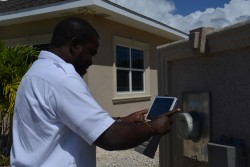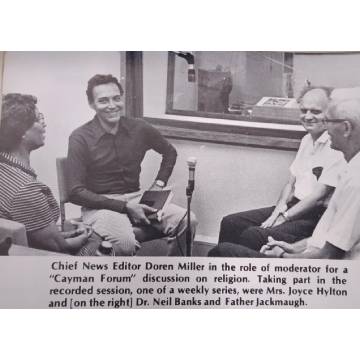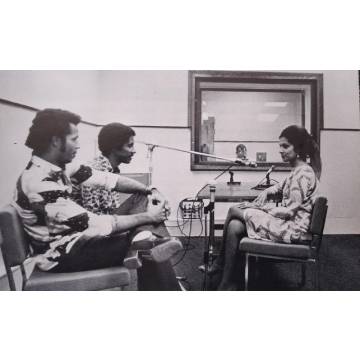News
MRCU Begins Annual Residential Inspections for 2019

Disease Prevention Officers (DPOs) from the Mosquito Research and Control Unit (MRCU) recently began residential inspections as part of ongoing year-round efforts to combat the dangerous Aedes aegypti mosquito.
DPOs drive clearly marked MRCU trucks, wear MRCU clothing and have government identification. They inspect the grounds for containers, whether human made (buckets, tyres, cisterns) or natural (bromeliads, tree holes), that might harbour Aedes aegypti, which transmits diseases like Zika, chikungunya and dengue.
MRCU Director Jim McNelly, PhD says team members will explain the process in depth to householders in any yard they visit. Dr McNelly also notes that the inspections will extend more to the eastern districts than has been the practice in the past.
Minister for Health, Hon. Dwayne Seymour, stresses the importance of the public’s cooperation during this exercise. Mr Seymour notes that the undertaking is part of MRCU’s integrated strategy to combat the growth and reproduction of the invasive species. Homeowners’ compliance during visits is essential, he says, to preventing a serious public health concern.
To track information obtained from the visit. DPOs are carrying tablets that they use to enter the number, type and location of containers. This information is essential to MRCU’s surveillance and eradication programme. For the first time the process includes scanning barcodes on CUC electric meters; which are being used to identify the inspection sites, and are part of MRCU’s upgraded data management system.
To facilitate the new upgrade the DPOs received training from the Caribbean Public Health Agency (CARPHA) and the Centres for Disease Control (CDC) in the United States. Both entities have been advocating for the barcode system to be adopted throughout the Caribbean, as part of efforts to share regional data on Aedes aegypti.












